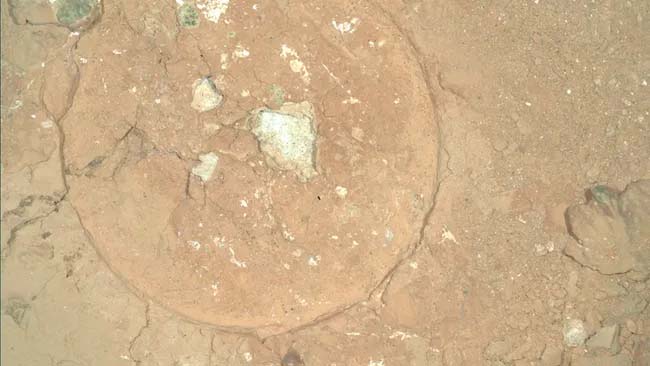Science: NASA’s Perseverance rover is about to complete four years of activity on the surface of Mars — and in the meantime, the rover has been exploring ancient environments, collecting samples, and investigating whether our red-hued neighbor may have ever supported microbial life In its latest findings, Perseverance used its Sherlock Watson camera to take a mosaic image at night of the Malagosa Crest abrasion patch at a location called “Serpentine Rapids.” The image showed white, black, and surprisingly green spots within the rock. While the composition of these rocks remains a mystery, the unexpected discovery has scientists excited about what other hidden gems Perseverance may find down the road.
To obtain images from within the rock, Perseverance created an abrasion patch on an outcropping of the rock called “Wallace Butte.” The abrasion patch was five centimeters (about two inches) in diameter, and the larger green spot that can be seen in the upper left of the image is about two millimeters (about 0.08 inches) in diameter. This image was obtained on August 19, the Mars 2020 mission’s 1,243rd day on Mars. Rocks on Earth similar to the red Martian rocks studied typically get their color from oxidized iron, the same type of iron that makes our blood red and is similar to the oxidized red rust you might find on your car. Green spots like those that can be seen in Perseverance’s new image are also common in red rocks on Earth, and form when liquid water seeps through sediment before it hardens into rock. This process supports a chemical reaction that turns the oxidized iron into its reduced form, creating a green color in the rock.
